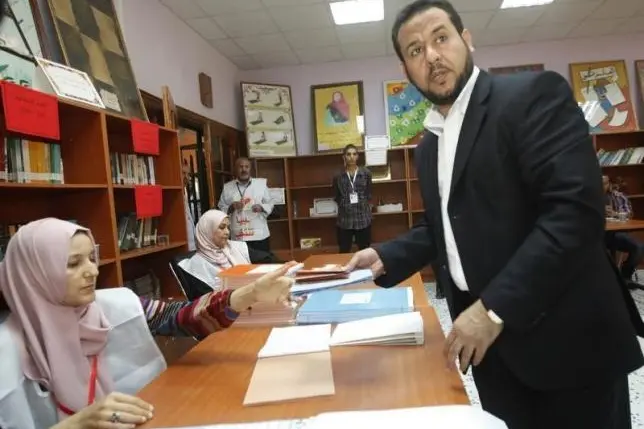PHOTO
LONDON, June 9 (Reuters) - British prosecutors said on Thursday there was not enough evidence to bring charges in the case of two opponents of former dictator Muammar Gaddafi who were sent back to Libya with their families in 2004.
Former Libyan dissident Abdel Hakim Belhadj has accused Britain's MI6 intelligence service of helping to arrange his and his wife's rendition to Tripoli from Southeast Asia.
He alleges that he and another dissident Khadija al Saadi, who was also sent back with his family, were frequently tortured by Gaddafi's regime after their return.
Police and the CPS began an investigation in January 2012 after documents found following the fall of Gaddafi suggested that MI6 had been involved in the rendition operation.
London's Metropolitan Police said it had submitted a file of evidence of more than 28,000 pages in June 2014.
Britain's Crown Prosecution Service (CPS) said it had considered the evidence relating to one, unnamed suspect in connection with allegations but decided no one should face charges.
Sue Hemming, head of the CPS's Special Crime and Counter Terrorism Division, said: "Following a thorough investigation, the CPS has decided that there is insufficient evidence to charge the suspect with any criminal offence.
"We made our decision based upon all the available admissible evidence and after weighing up all of the information we have been provided with," she added in a statement.
The CPS said it was clear that officials from Britain did not physically detain, transfer or ill-treat the alleged victims directly, nor did the suspect have any connection to the initial physical detention of either man.
Belhadj told the BBC he was "very disappointed that individuals responsible" would not be prosecuted, adding: "If there is political interference with the courts, then it undermines British justice."
The British parliament's Intelligence and Security Committee said it would examine the case as part of its ongoing inquiry into the role of the UK government and its security agencies' role in detainee treatment and rendition.
(Reporting by Stephen Addison; editing by Michael Holden) ((stephen.addison@thomsonreuters.com; 0207 542 7947;))
Former Libyan dissident Abdel Hakim Belhadj has accused Britain's MI6 intelligence service of helping to arrange his and his wife's rendition to Tripoli from Southeast Asia.
He alleges that he and another dissident Khadija al Saadi, who was also sent back with his family, were frequently tortured by Gaddafi's regime after their return.
Police and the CPS began an investigation in January 2012 after documents found following the fall of Gaddafi suggested that MI6 had been involved in the rendition operation.
London's Metropolitan Police said it had submitted a file of evidence of more than 28,000 pages in June 2014.
Britain's Crown Prosecution Service (CPS) said it had considered the evidence relating to one, unnamed suspect in connection with allegations but decided no one should face charges.
Sue Hemming, head of the CPS's Special Crime and Counter Terrorism Division, said: "Following a thorough investigation, the CPS has decided that there is insufficient evidence to charge the suspect with any criminal offence.
"We made our decision based upon all the available admissible evidence and after weighing up all of the information we have been provided with," she added in a statement.
The CPS said it was clear that officials from Britain did not physically detain, transfer or ill-treat the alleged victims directly, nor did the suspect have any connection to the initial physical detention of either man.
Belhadj told the BBC he was "very disappointed that individuals responsible" would not be prosecuted, adding: "If there is political interference with the courts, then it undermines British justice."
The British parliament's Intelligence and Security Committee said it would examine the case as part of its ongoing inquiry into the role of the UK government and its security agencies' role in detainee treatment and rendition.
(Reporting by Stephen Addison; editing by Michael Holden) ((stephen.addison@thomsonreuters.com; 0207 542 7947;))





















